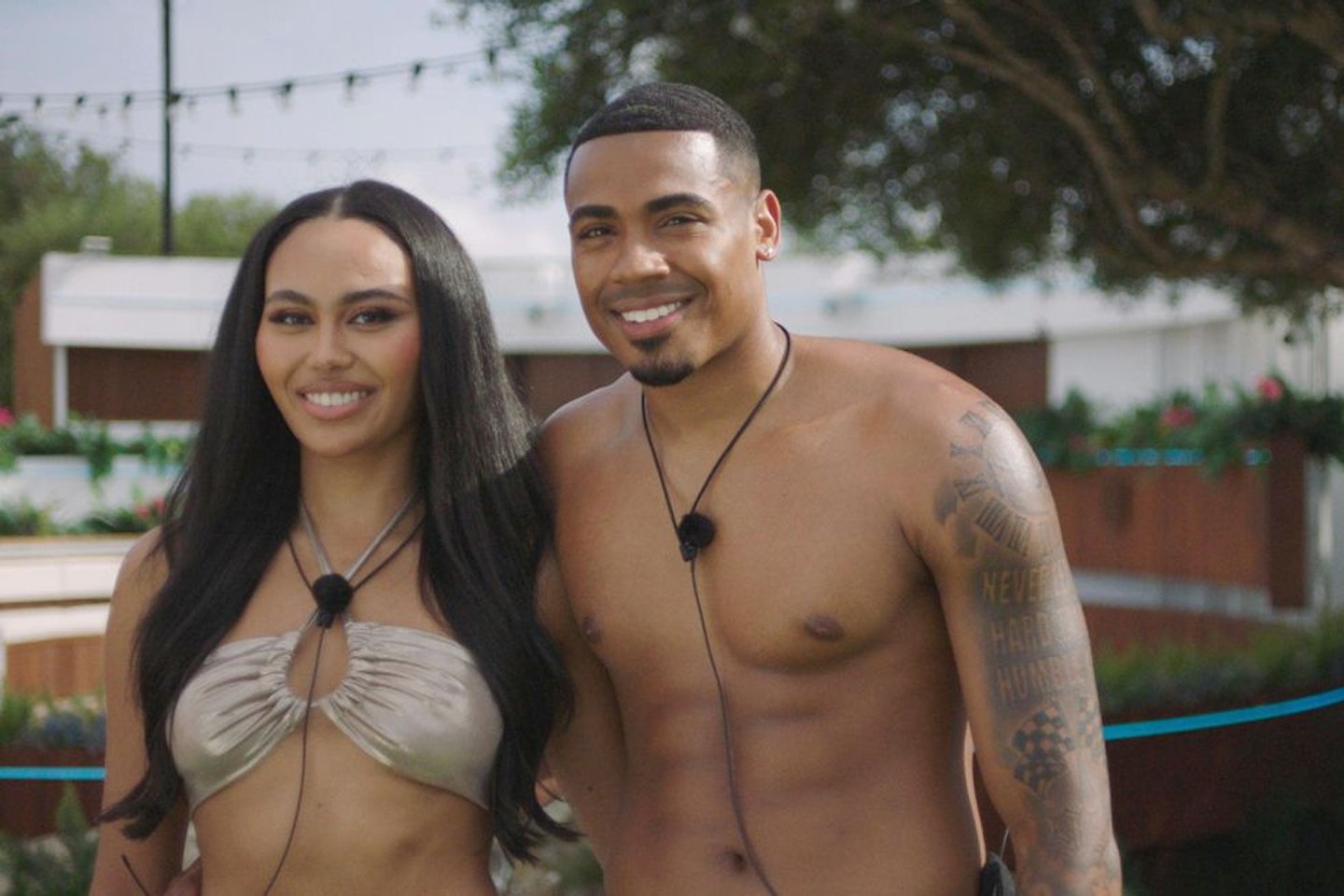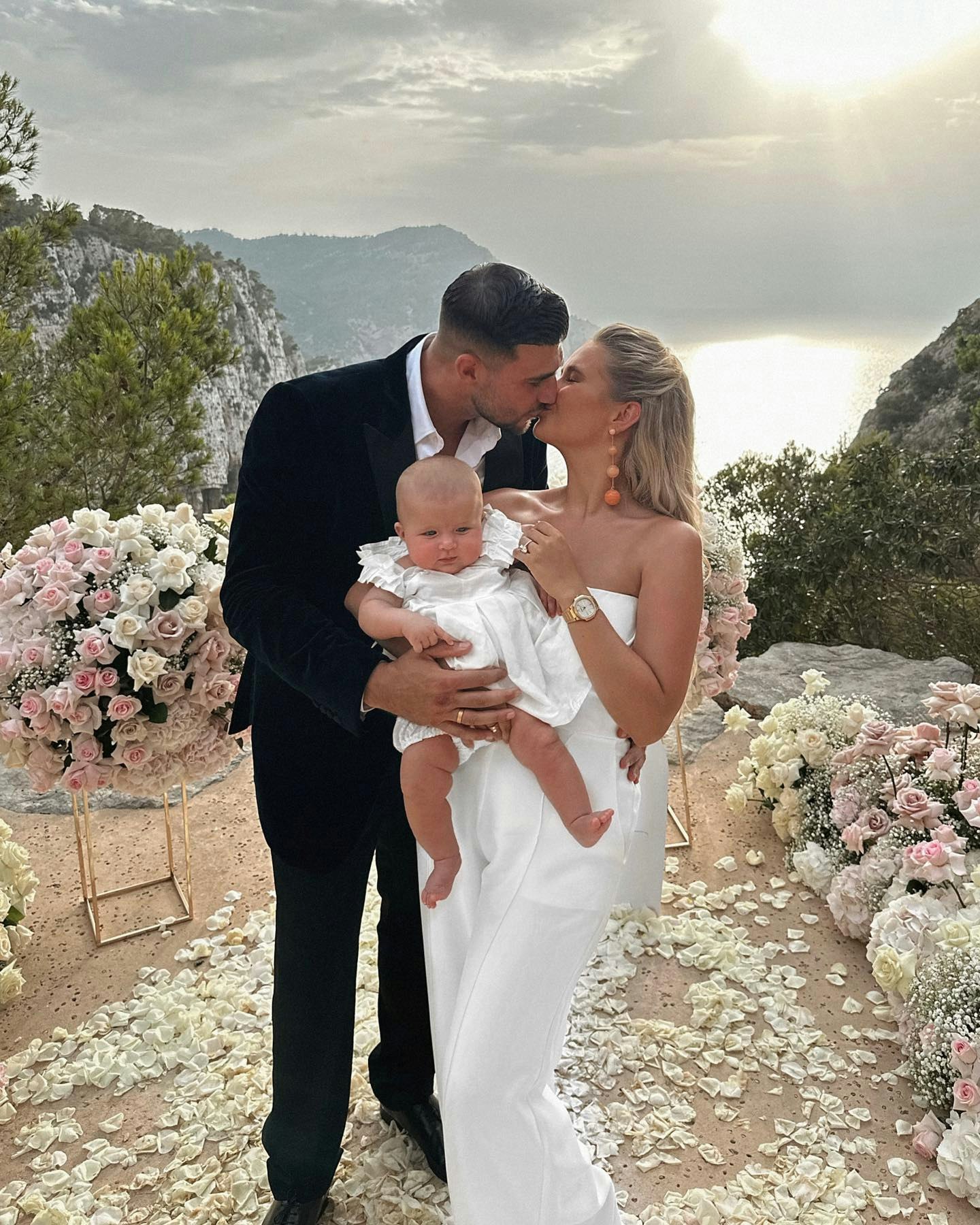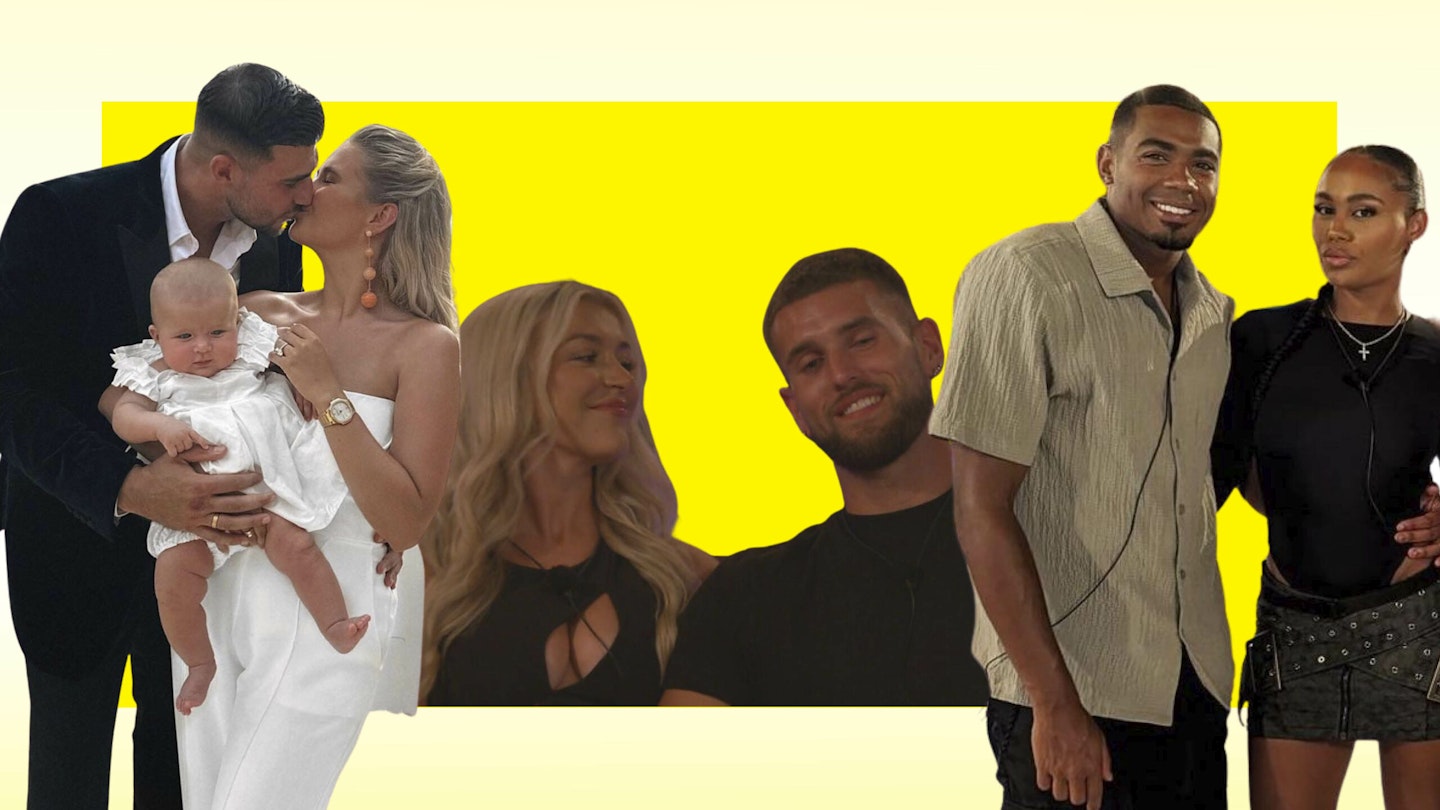When it comes to predicting what couple will take home the crown and prize money for the show’s tenth season, Love Island exec Mike Spencer admits he changes his mind on who his favourite is every couple of days – from Molly and Zach to Tyrique and Ella. But can past dramas between couples stop them from going the distance? ‘Quite often with these love stories, they’re ones that work because they've been through so many ups and downs,’ he tells Grazia, and if anyone should know, it’s the man who has worked behind the scenes on Love Island from the beginning.
Having joined as a casting producer on season one, and climbing the ranks to become executive producer in 2019 and creative director this year, Mike cultivates the essence of the show, spending his days in the thick of the Islanders’ dramas.
He is quick to point out to Grazia the empowering undertones of this season that exist outside of all the coupling up. This year, he’s rooting for the ‘strong powerful women on the show’, particularly Ella, Whitney and Jess.
Mike is also a fan of Tyrique, fascinated by his experience of falling in love for the first time. Ty has, admittedly, come under fire for misogynistic ‘red flag’ behaviour at certain points, however Mike is adamant that Ty’s openness when it comes to talking about his feelings will create space for young men to be more open.

‘He is really clearly a young man talking about his thoughts and emotions,’ he says. ‘So the young men back home that aren’t usually the type to really open up are going to watch that and think, “Well, I might talk about mine”. I just love how we’ve got these strong archetypes who are really opening up on the show.’
This season has been praised for its championing of Black British culture, from the language used during the Islander’s broadcasted conversations to the hair and fashion we see on screen (particular shout out to the use of durags, bonnets and wig bands). There are more Black contestants on the show this season, and they have been reported to appear more comfortable and feel empowered to act more authentically – a step forward, seeing as Love Island has been criticised in the past for feeling ‘distinctly white’.
‘I feel like this series is really representative of young people today,’ Mike says, assuring Grazia that the show’s team continues to evolve their casting processes to ensure diversity. ‘We’ve always got room for growth as a show,’ he says of their plans to continue to show contestants from different backgrounds on screen.
We might even be living through a particularly golden era for Love Island couples, with the news breaking last weekend that legendary couple Tommy Fury and Molly Mae got engaged in Ibiza. ‘I was really pleased to see the news. So I think it just proves that the show does work. Super proud of them,’ Mike says.
When asked what the key ingredient is to the show’s continued success and its couples that stand the test of time, Mike is insistent that Love Island’s ability to distance potential romantic matches from the drama and distractions that come from dating apps leads to meaningful relationships being forged.
‘The apps were the bane of my life when I was single,’ he says. ‘We are so used to swiping left and right, jumping on the latest date and being obsessed with our phones and social media. If you strip that away like we do in the villa, all you’ve got left is chemistry and conversation. I think that’s the key to a successful grounding for a relationship, and why [contestants] make such strong connections.’

Despite Love Island’s long-term monopoly of the reality TV dating show landscape, Mike is clear that when it comes to future proofing the show, it’s all about staying agile and reactive, open to making changes on the fly as things develop live. This is important, particularly as more and more dating shows are flooding our screens, from Netflix’s Love Is Blind to BBC’s I Kissed A Boy.
Being able to throw in bombshells and last-minute twists and turns is part of the show’s edge, he says, in comparison to other competing dating shows where all episodes are filmed before they’re aired, with no chance for audience feedback or chances to tweak. ‘We have the advantage of the conversation being very current, so it’s all about being reactive and knowing that things change by day,’ he says. ‘Having that flexibility keeps everything feeling fresh.’ Mike adds that social media commentary plays a huge part in producers’ plans, with TikTok pulling ahead of Twitter as the platform to monitor.
Social media can be something of a double-edged sword, though. Before the tenth season launched, the Love Island team formally advised contestants to suspend social media handles and accounts while they’re on the show, for their own as well as their friends and families’ protection. Many ex-contestants, such as series five’s Amy Hart, have spoken out about the impact of trolling and death threats on their loved ones. The show has also held firm on welfare support before, during and after filming, an invaluable resource following ex-contestants Mike Thalassitis and Sophie Gradon’s tragic deaths by suicide.
‘The show will continue to evolve and hopefully lead the way in terms of welfare and aftercare,’ Mike says, pointing out the need for constant evolution, particularly because of the ‘uncontrollable landscape’ of social media and its impact. ‘We will safeguard our Islanders as much as we can and continue to grow.’
Fans have called for spin-offs and different iterations of Love Island in the future, and for Mike, it’s all about bringing back favourite contestants for an All Stars series. Nothing has been confirmed yet, but watch this space. In terms of bringing LGBTQIA+ contestants onto Love Island, the show’s team have previously referred to ‘logistical difficulties’ preventing this from happening. This is a shame, seeing as queer-based TV shows such as I Kissed A Boy (and Girl) and The Ultimatum: Queer Love have received such love.
When asked if he sees queer people entering Love Island in the future, Mike said: ‘I think the format is the format. I think Love Island as we know and love it will continue. Across the network there's other shows for people to apply to, but I think we'll continue to run Love Island as it is.’
We are so used to swiping left and right, jumping on the latest date and being obsessed with our phones and social media. If you strip that away like we do in the villa, all you’ve got left is chemistry and conversation.
Critics of Love Island and other reality TV dating shows have also pointed out that the majority of the market concentrates on young people, when all ages are looking for love. Davina McCall will present a ‘middle-aged Love Island’ series named My Mum, Your Dad, which Mike is excited about: ‘I think it sounds amazing. I can't wait to watch’. He compares it to the legendary dating game show Blind Date – presented by both Cilla Black and Paul O Grady at different points – as a great example of dating shows being successful across different age demographics. But, at least for now, Love Island will be focussing on the younger generations.
Another long-term point of contention has been the Love Island contestants’ argued lack of body diversity. Ex-contestants and fans alike have discussed it in the past, with 2022 Islander Sharon Gaffka commenting that producers could do more to bring people with different body types on to the show, deviating from the six-packed men and petite women that we are used to seeing.
For Mike, what a different body type is perceived to be is ‘subjective’, and there are no restrictions from the show when it comes to a contestant’s size or shape. ‘I think we do showcase a variety of body shapes and sizes,’ he says. ‘If you're a confident person and you'd be happy to go on telly in your swimwear for eight weeks and apply for the show, we'd love to meet you. And we have no restrictions in terms of body size and shape. You just have to apply.’
Having started out as a casting producer on the show, Mike is well acquainted with the islander selection process. So how do you tell the ones looking for love apart from the ones who might just be looking to up their follower count? You’ve got to be single and prepared to do the work to find someone, Mike says – and if you’re not, the cameras will expose you.
We have no restrictions in terms of body size and shape. You just have to apply.
‘As much as we’re not naive enough to think that it could be an exciting prospect for people to enter this industry and gain followers on social media, you can’t hide who you are,’ he adds. ‘There are seventy odd cameras on you, you can’t go on the show and not want to date, not want to mingle, not want to meet people.’
As Love Island host Maya Jama completes her second season, Mike is tight-lipped as to whether she will return for the next outing. He speaks fondly of their dressing room gossip sessions, though, as well as her ‘amazing’ and ‘authentic’ presence and the care she has for the contestants. ‘She's very invested in the Islanders. She often has lots of chats with them, she'll be standing [with them] long after the cameras are off, just chatting,’ he says.
As Mike has worked on the show from the beginning, he undoubtedly has expert knowledge to divulge when it comes to finding love on the show and shoring up support from the audience. For him, when it comes to romance, honesty and authenticity is key. ‘You also have to be up for dating outside of your usual type,’ he says. ‘If I was to go back to some of the biggest successes we’ve had on the show, people have ended up with partners who may or may not have been their type.’ And as far as finding popularity on the show goes, he calls any contestant’s ability to share their thoughts and feelings on screen as ‘an incredible art’. He explains: ‘It’s the relatability that draws in the viewers. I watch it and think “I’ve dumped someone, I’ve fallen in and out of love” – and that’s key.’
Above all, it’s the vulnerability and bravery of contestants as they continue to put their hearts on the line, he says, that will keep Love Island going for years to come.
‘As long as we can keep finding people who are up for showcasing their emotions, their ups and downs and the trials and tribulations of dating, then I think we're onto a winner.’
